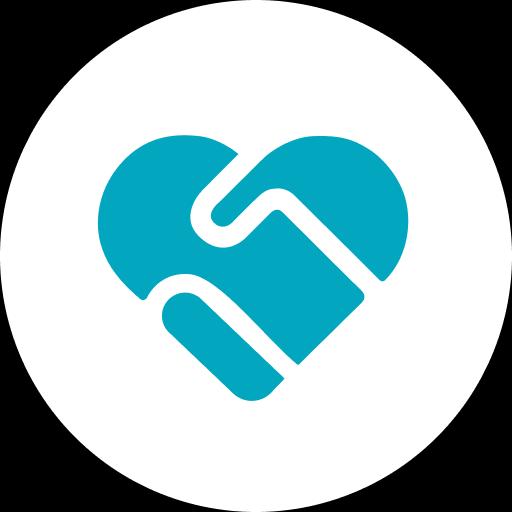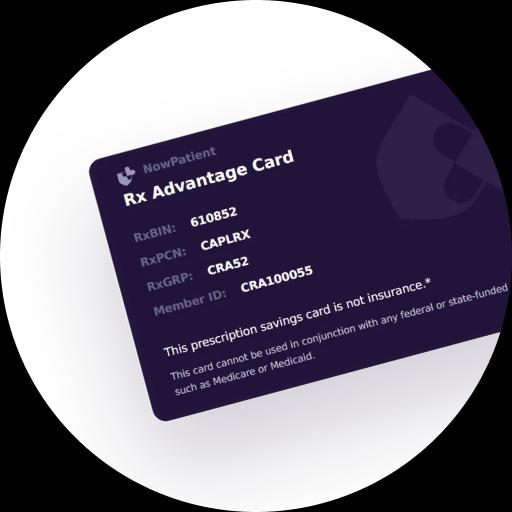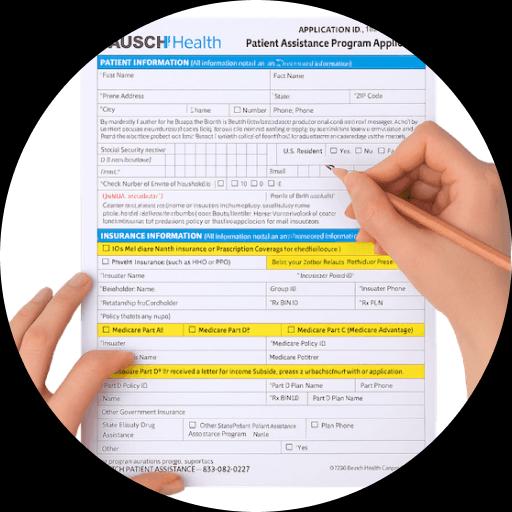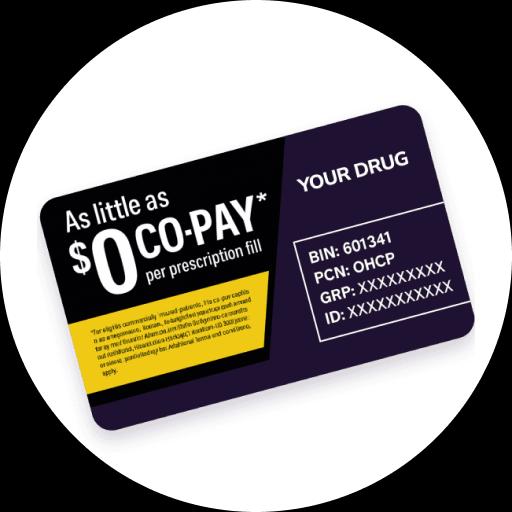Save on Lithium with Coupons, Discounts & Savings Programs


Start Saving Today!
Lower the Cost of Your Lithium Prescription
More great savings
View Related Brands
MEDICAL INFORMATION
Lithium Key Facts
What dosages is Lithium available in?
Lithium is available as a 300 mg extended-release tablet.
What is Lithium used for?
Lithium is a mood stablizer that is used in the treatment of manic episodes of bipolar disorder or the long-term maintenance treatment of bipolar disorder.
How does Lithium work?
Lithium is a mood stabilizer. It’s not known exactly how Lithium works, but it’s thought to affect the levels of certain chemicals in the brain that regulate mood.
How do I take Lithium?
The typical dose of Lithium is 900 mg by mouth 2 times a day, or 600 mg 3 times a day. The total daily dose is 1,800 mg.
For long-term control: The typical dose is 600 mg by mouth 2 times a day. The total daily dose is 1,200 mg. Your provider will adjust your Lithium dose based on if you have kidney problems, how well your bipolar symptoms are responding to the medication, if you’re having side effects, and your blood Lithium level.
Is it safe for me to take Lithium?
Lithium is a safe and effective treatment when used for FDA licensed indications. However, like all medications, they may give you unwanted side effects. You should always discuss potential side effects with your physician to ensure the medication is suitable and right for you.
Lithium Common Side Effects
Common side effects of Lithium:
- Hand trembling
- Excessive urination
- More thirst
- Nausea
- General discomfort when you start treatment
- Tremor
- Muscle twitches
- Restlessness
- Vomiting
- Diarrhea
Lithium Serious Side Effects
Serious side effects are rare with Lithium. Contact your healthcare provider immediately if you experience any of the following.
- Serotonin syndrome: fast heart rate, dizziness, sweating, flushing, tremor (shakiness), muscle stiffness, muscle twitching or spasms, uncoordinated movement, distress, seizures, hallucinations, coma
- Lithium toxicity: trouble breathing, seizures, coma, kidney failure, abnormal heart rhythm, dizziness, confusion, blurry vision, poor balance, poor speech, poor coordination
- Kidney damage: more frequent urination, swelling in legs, fatigue
- High pressure in the brain and swelling in the eye: severe headaches behind eyes, ringing in the ears, blurred or double vision, and blindness
- Low blood sodium levels: nausea, fatigue, headache, confusion, disoriented, hallucinations (seeing things that aren’t real), seizures, unconsciousness
- High blood calcium levels: fatigue, muscle weakness, loss of appetite, nausea, vomiting, constipation, bone pain, depression, confusion
- Brugada syndrome (life-threatening heart rhythm problem): abnormal ECG findings, unexplained fainting, and irregular heartbeat (palpitations)
Effects of other drugs, drug classes and over-the-counter products on Lithium
The following medications may interact with Lithium:
- Diuretic-, ACE-, and ARB-induced sodium loss may increase serum Lithium concentrations. Start with
- lower doses of Lithium or reduce dosage, while frequently monitoring serum Lithium concentrations and
- signs of Lithium toxicity
- Concomitant administration of Lithium with serotonergic drugs can precipitate serotonin syndrome. Monitor patients for signs and symptoms of serotonin syndrome, particularly during Lithium initiation. Examples of serotonergic drugs include selective serotonin reuptake inhibitors (SSRI), serotonin and norepinephrine reuptake inhibitors (SNRI), and monoamine oxidase inhibitors (MAOI)
- Concomitant administration of methyldopa, phenytoin, or carbamazepine with Lithium may increase the risk of adverse reactions with these drugs
The following drugs can lower serum Lithium concentrations: acetazolamide, urea, xanthine preparations, and alkalinizing agents such as sodium bicarbonate.
- Concomitant extended use of iodide preparations, especially potassium iodide, with Lithium may produce hypothyroidism
- Concurrent use of calcium channel blocking agents with Lithium may increase the risk of neurotoxicity in the form of ataxia, tremors, nausea, vomiting, diarrhea, and/or tinnitus
- Concurrent use with metronidazole may provoke Lithium toxicity. Patients receiving such combined therapy should be monitored closely
- Concurrent use of fluoxetine with Lithium has resulted in both increased and decreased serum Lithium concentrations. Patients receiving such combined therapy should be monitored closely
Nonsteroidal anti-inflammatory drugs (NSAIDs): Lithium levels should be closely monitored when
- patients initiate or discontinue NSAID use
Who makes Lithium?
Various FDA-approved generic manufacturers
Is Lithium safe in pregnancy?
Lithium may cause fetal harm when administered to a pregnant woman. You should talk to your healthcare provider before taking this medication if you are pregnant.
What is the brand name for Lithium?
Medical Disclaimer
NowPatient has taken all reasonable steps to ensure that all material is factually accurate, complete, and current. However, the knowledge and experience of a qualified healthcare professional should always be sought after instead of using the information on this page. Before taking any drug, you should always speak to your doctor or another qualified healthcare provider.
The information provided here about medications is subject to change and is not meant to include all uses, precautions, warnings, directions, drug interactions, allergic reactions, or negative effects. The absence of warnings or other information for a particular medication does not imply that the medication or medication combination is appropriate for all patients or for all possible purposes.
OUR CUSTOMERS VIEW
What Customers Love About Our Service
We want everyone to be happy and healthy, that’s what keeps us going. Read what some of them have to say about us.
Medicines Experts
Meet Our Medical Team
We are a broad skilled and passionate group of clinicians with experience of operating in health systems in the United Kingdom & United States. Providing excellent care and advice is at the heart of everything we do. You can read more about our medical team by visiting the medical team page or learn more about how we curate content by visiting our editorial process

























